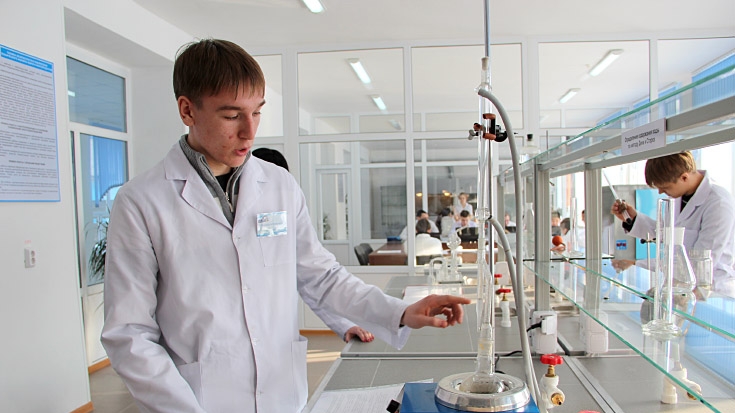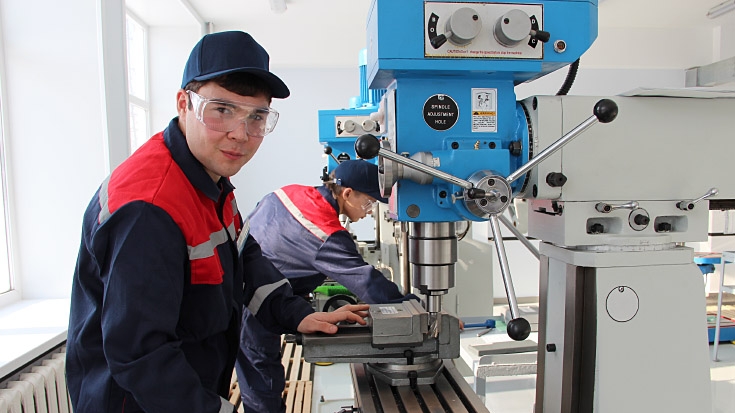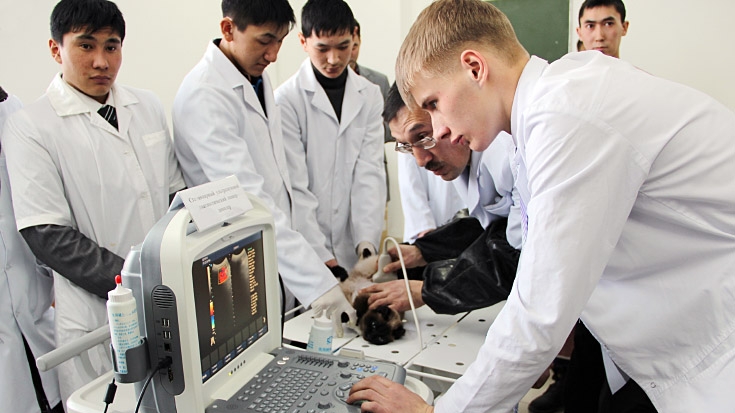Students at the Pavlodar Chemical-Mechanical College are learning how to maintain and repair oil refining equipment, about road repair, and about quality control for chemical compounds. They learn on-the-job, as it were, says Roman Koshkin, a student in the oil-refining program. “When you first come to the refinery site you see it’s a big enterprise, it’s just breathtaking!” he says. “You see the technological process, and understand that its quite different from what we’ve been told about.”
The hands-on training aims to give students the technical skills they need to move right into the workforce, says Lyudmila Pak, of the Pavlodar Refinery. “Of course the best students will be hired by our refinery. During the traineeship all our specialists and heads of the responsible divisions are watching these students: how they work, how they manifest themselves as future employees, not only as professionals but as interpersonally competent staff so that in the future the student could become our employee.”
Natalya Oleshko, a teacher at the technical college, agrees. “I think there will be 100% employment of these students. I see it in their eyes, they really like it.”






